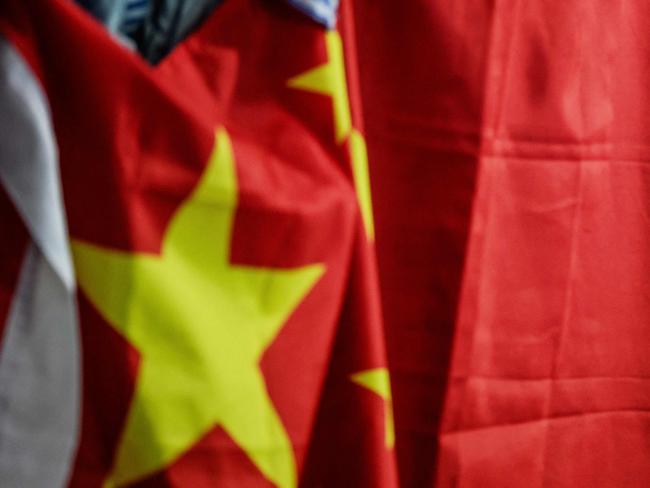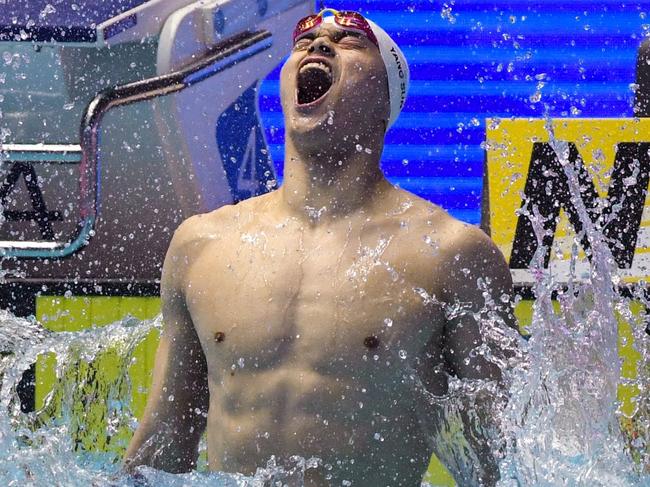Julian Linden: China playing the race card on swimming doping scandal is a deceitful distraction
After the latest relevations about doping in China’s swim team, the race card consistently played by the Chinese is a deceitful distraction. It’s about fairness not race, writes Julian Linden.
Olympics
Don't miss out on the headlines from Olympics. Followed categories will be added to My News.
As the Paris Games deals with yet another drug scandal, the one certainty is that China lost the trust of clean swimmers a long time ago.
Revelations that two members of the Chinese national team were secretly stood down for a year afer testing positive to a banned substance has fuelled anger about the failure of World Anti-Doping Agency (WADA) to protect the sport.
When it comes to the Russians or the Chinese, sporting bodies and anti-doping regulators still go weak at the knees whenever the Communist superpowers play the race card in response to questions about doping.
It’s a deceitful distraction because cheating in sport is not a racial issue, it’s about fairness, and retaining trust in the games we love and play.

This week’s extraordinary admission by World Aquatics that it is actively targeting Chinese swimmers for extra drug tests is a small step in the right direction.
The only regret is that swimming’s world governing took so long to act – and only did so after the shocking revelation that 23 Chinese swimmers secretly escaped punishment, despite testing positive to the same banned drug in 2021.
The bleeding hearts who say it’s unfair to point the finger at an entire country just because some individuals got busted are missing the point and are part of the problem.
Tougher action needs to be taken against the Chinese, who are lucky not to be banned from swimming years ago because of their long rap sheet.
The first public protests against China’s swimmers were conducted by two brave Australian female competitors at the first shortcourse world championships in 1993.
A year later, at the regular world titles in Rome, China won 12 of the 16 women’s events, prompting accusations that something was fishy after they had hired former East German coaches. A month later, at the Asian Games in Hiroshima, seven Chinese swimmers, including two recently crowned world champions, were busted for the banned drug dihydrotestosterone, setting in motion a 30-year cycle of distrust that continues today.
In 1998, Yuan Yuan and her coach were caught at Sydney airport smuggling 13 vials of muscle-building human growth hormone into Australia ahead of the world championships in Perth.

More than 40 Chinese swimmers – more than triple the number from any other country – tested positive to performance-enhancing drugs in the 1990s alone.
In 2014, Sun Yang tested positive for trimetazidine – the same heart drug the 23 Chinese tested positive for in 2021 – but got off light, apparently serving a three-month suspension in secrecy.
In 2019, it was revealed that the Chinese authorities had absolved Sun of another anti-doping violation, this time for smashing his samples before they could be tested.
But once it became public, WADA appealed and Sun was later banned for four years, missing the Tokyo Olympics.
One of the biggest concerns about the recent case is how the Chinese were exonerated.
Normally, athletes who test positive incur an automatic ban, but China’s anti-doping regulator CHINADA handed the investigation to China’s Ministry of Public Security.
As first reported by this masthead in April, they deemed that the swimmers had no case to answer because they had been accidentally contaminated by eating food from a hotel kitchen with little explanation about how they reached that conclusion.
No one should be surprised because Chinese sport is filled with accusations of corruption.
A report in the Asian Crime Century says corruption in Chinese sport is out of control, which is why many outsiders are sceptical about the findings of the swimming probe.





